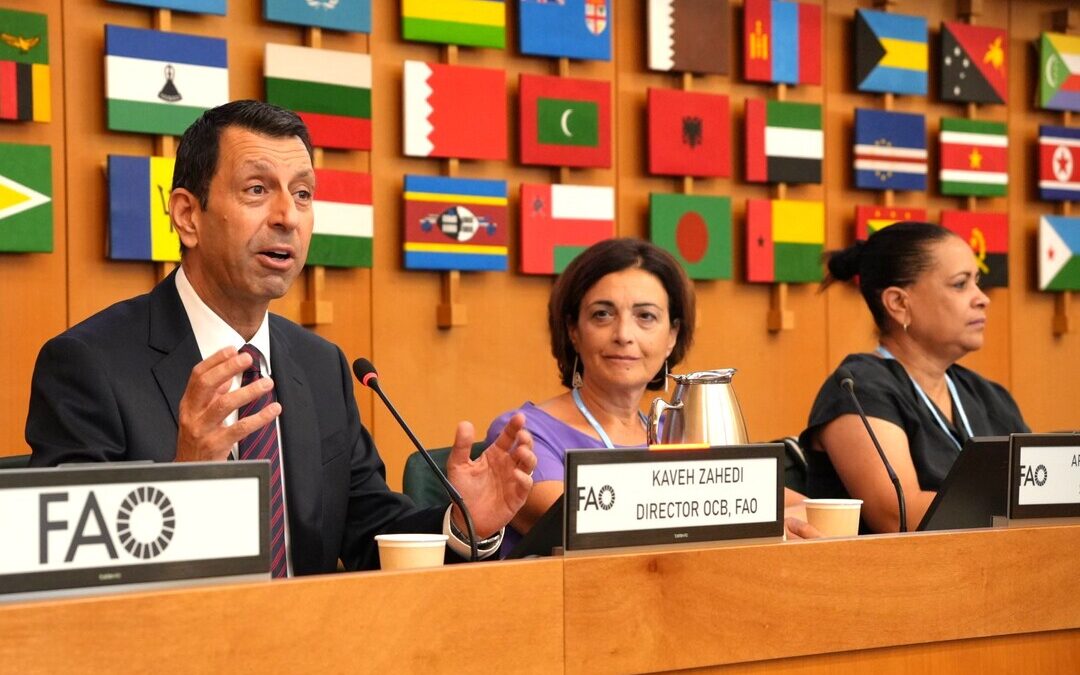FAO Climate Finance Agriculture Push Tops Agenda at UN Forum in Rome
FAO climate finance agriculture seen as crucial to cutting emissions and boosting food security, UN forum told.
FAO climate finance agriculture support remains far below its potential despite being critical to cutting emissions and boosting food security, a senior UN food agency official said on Sunday as global delegates convened in Rome for a week of climate finance talks.
“Climate finance flows to agrifood systems are nowhere near their potential, despite being a critical trigger to reducing emissions and transforming agrifood systems,” said Kaveh Zahedi, director of the Food and Agriculture Organization’s Office of Climate Change, Biodiversity and Environment.
He was speaking at the 2025 Forum of the Standing Committee on Finance of the UN Framework Convention on Climate Change, which opened at FAO headquarters on Sept. 8.
FAO Urges Action
FAO Director-General QU Dongyu joined Zahedi in inaugurating the forum, which the agency said aims to highlight the climate, biodiversity and food security gains that could be unlocked by scaling up investment in agriculture.
Officials argue that agriculture, forestry and fisheries remain underfunded compared with energy and transport, despite being central to global efforts to meet the Paris Agreement targets.
The SCF forum brings together representatives from governments, civil society and international organizations to assess progress on climate finance flows and provide input ahead of the COP30 climate summit in Belem, Brazil, in November.
Week of Climate Finance Talks
The forum is part of a wider series of meetings at FAO headquarters in September that have drawn more than 250 participants from over 90 countries, representing around 170 governments and institutions.
The schedule includes the SCF’s 38th meeting, the launch of the Global Environment Facility’s Food Systems Integrated Programme, the soft launch of FAO’s Resilient Agriculture Investment for Net Zero Land Degradation initiative and a meeting of the FAO-led Food and Agriculture for Sustainable Transformation Partnership.
FAO officials said the week is designed to showcase the role agrifood systems can play in reducing emissions while also improving livelihoods and restoring ecosystems.
Spotlight on Agrifood Projects
Delegates are also being shown case studies from the Scaling Climate Ambition on Land Use and Agriculture initiative, a joint FAO-UNDP program supported by Germany’s International Climate Initiative.
SCALA has helped more than 20 countries develop scalable and finance-ready agrifood solutions. It features work in countries such as Egypt, Thailand, Costa Rica, Senegal, Cambodia and Colombia.
Julia Wolf, FAO’s global coordinator of SCALA, said collaboration across governments and sectors was essential to closing the climate finance gap. “To build climate resilience, reduce greenhouse gas emissions, restore ecosystems and strengthen food security, we need to bring all elements together – including the large-scale climate finance needed to make a lasting impact,” she said.
Also Read:
Climate Finance Shortfalls Slow Developing Nations’ Adaptation Efforts
Nirmal Menon
Related posts

Subscribe
Error: Contact form not found.


